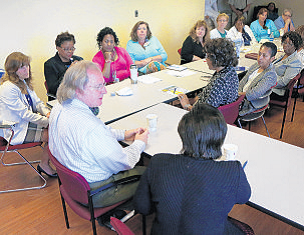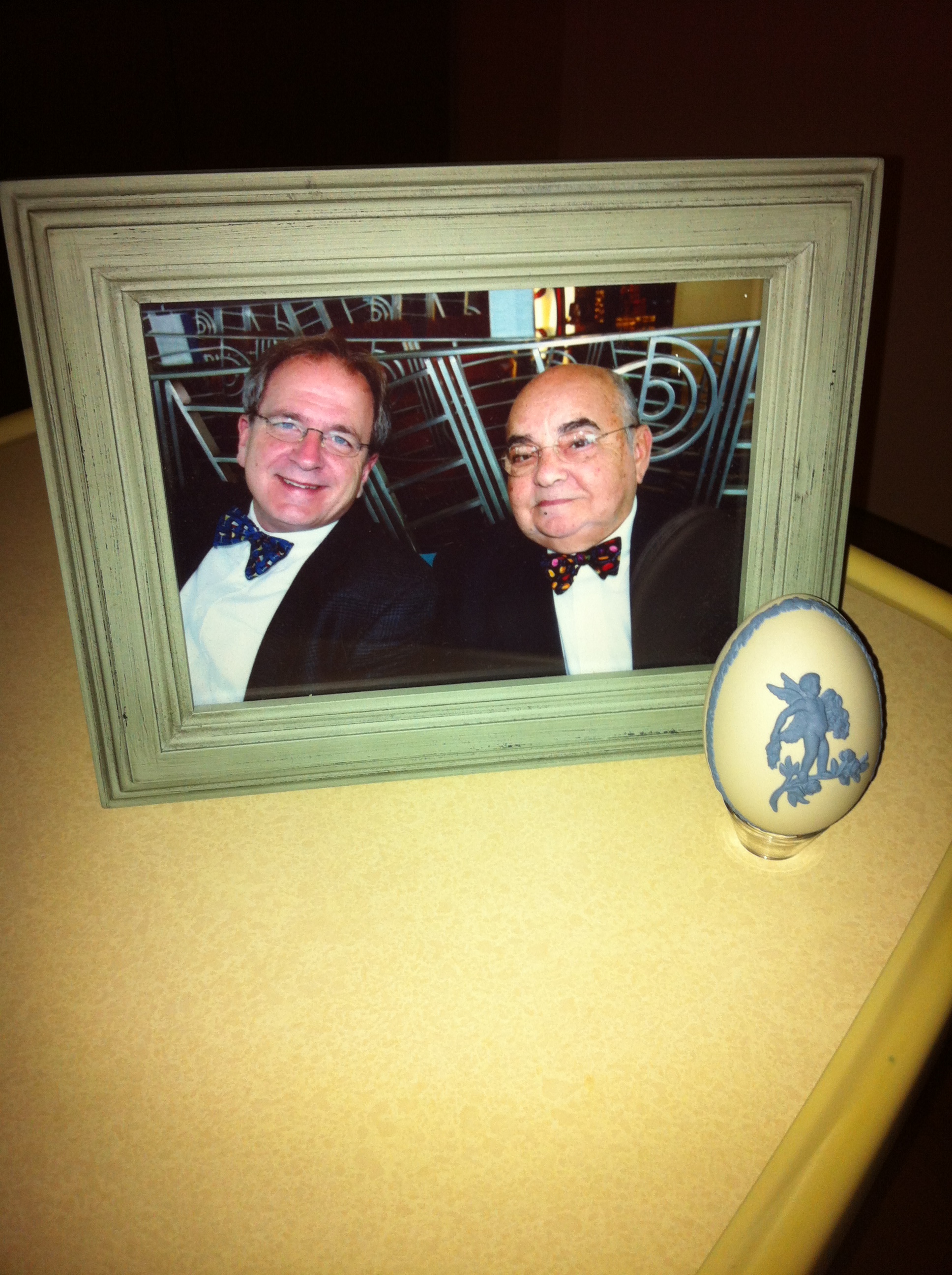Our Follow-Up Story. Life after death: Couple's story sparks change
This content has been archived. It may no longer be relevant
It’s taken Chris MacLellan about three months to prepare himself for this moment, the sorting through of everything that his partner, Bernard Richard Schiffer, left behind when he died March 9 of esophageal cancer at age 83.
There are the memories, unresolved feelings of loss and a sense of emptiness in the Deerfield Beach home they’d shared for 11 years.
There are the surprises, like the handwritten note tucked inside one of Schiffer’s alphabetized address books: “To love someone is to see the face of God.”
“I think Richard intended me to find the note. I think he left it for me,” said MacLellan, 57.
And there’s the legacy. The couple had agreed to let the Sun Sentinel chronicle their final months together in hopes of bringing awareness to the special challenges that lesbian and gay seniors face at the end of life. Since their story, “In Sickness and In Health,“ ran April 13, MacLellan has been overwhelmed by the response.
MacLellan has seen everything from letters of support or condolence to health care institutions pledging policy revisions.
Many who read the couple’s story expressed surprise that health care rights are so connected with marriage rights. Some gay couples said they are now considering marrying, even though they live in states like Florida that do not recognize such unions.
“I appreciate the people who have reached out, the kindness. It’s hard to believe that two ordinary people, who lived in a little house in Deerfield Beach, could make such an impact,” said MacLellan, who works as senior services coordinator for SunServe, a lesbian, gay, bisexual, transgender and questioning social service agency in Wilton Manors.
‘Who are you?’
In the story, MacLellan described rushing Schiffer to Broward Health North’s emergency room in September and being ignored by intake staff while they questioned his partner.
“When we first got to the ER, [the medical staff] paid 100 percent attention to Richard and didn’t really acknowledge my presence,” MacLellan said at the time. “When I tried to speak up, and give them more of the full story about what was happening, they said, ‘Who are you?'”

Speaking to upper level management at Broward Health North. Photos: Carline Jean, Sun-Sentinel Staff Photographer
A day after the story’s publication, MacLellan received a call from Broward Health North CEO Pauline Grant.
She invited MacLellan to speak at the hospital’s next management meeting.
“I was disappointed that we didn’t do a better job,” Grant said. “The emergency department is our front door, and we need to treat all of our families and patients with courtesy and respect.”
On May 15, MacLellan sat in a hospital conference room surrounded by almost 50 doctors, nurses and administrators, calmly retelling his experiences and taking questions. The atmosphere was serious but respectful.
“This is not right, and we are taking it as an opportunity to do better,” Grant said at the meeting.
Now, Broward Health North is working with SunServe to design sensitivity training for hospital employees, starting with those in the emergency room. In the past year, SunServe has been training nurses and health care workers in how to best treat LGBT patients, as well as analyze a facility’s practice for bias — such as using only “single, married and divorced” on records. SunServe has certified two assisted-living centers and a home health agency but had never worked with a hospital before, said the agency’s administrative director, Bryan Wilson.
MacLellan will become one of the program’s trainers this summer, working with Broward Health North and other facilities.
There are few formal initiatives to make the health care system more welcoming to gay and lesbian patients, said Catherine Thurston, senior director of programs for SAGE, a national advocacy organization for LGBT elders that has helped train about 4,000 health care providers nationwide. More facilities and providers are willing to take steps, she added, as they recognize gay and lesbian seniors are among their patients.











The good news is, you are not alone. TLO’s spirit and a world of friends who love you dearly. Hope to see you again in STL soon. Dick
Thanks, Chris, for keeping me in your loop. Special thanks for the hyperlink. Some of the comments puzzle me – maybe you, too?
I wish I knew more about grief-management.
I hope you won’t call for a straight-jacket for me. I share now that I frequently talk to the dead: my parents & sister especially, but friends, too. I ask their help on many days.
Love.
Dan
Bishop Daniel L. Ryan
Retired Bishop of Springfield in Illinois
535 West Ogden Avenue, # 201
Naperville, IL 60563-3286
630-416-6153
dan.ryan1952@yahoo.com
Thanks so much for sending this article. Hope things are going well with you. The whole story continues to amaze me I cannot believe how unaware I have been. I do hope you are doing well and that the house issue is resolved satisfactorily. Love, Harriet
Hi Dan! The response has been overwhelming positive. You won’t get a straight-jacket from me…I talk to Richard on a daily basis!
[…] Our Follow-Up Story. Life after death: Couple’s story sparks change […]